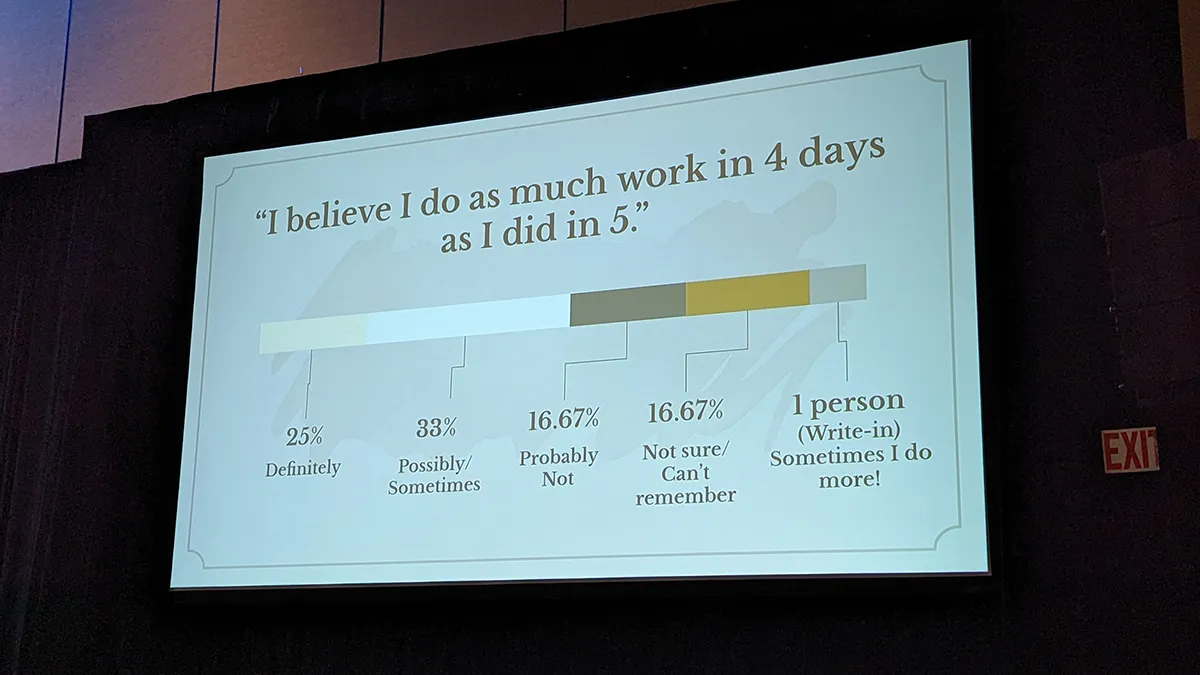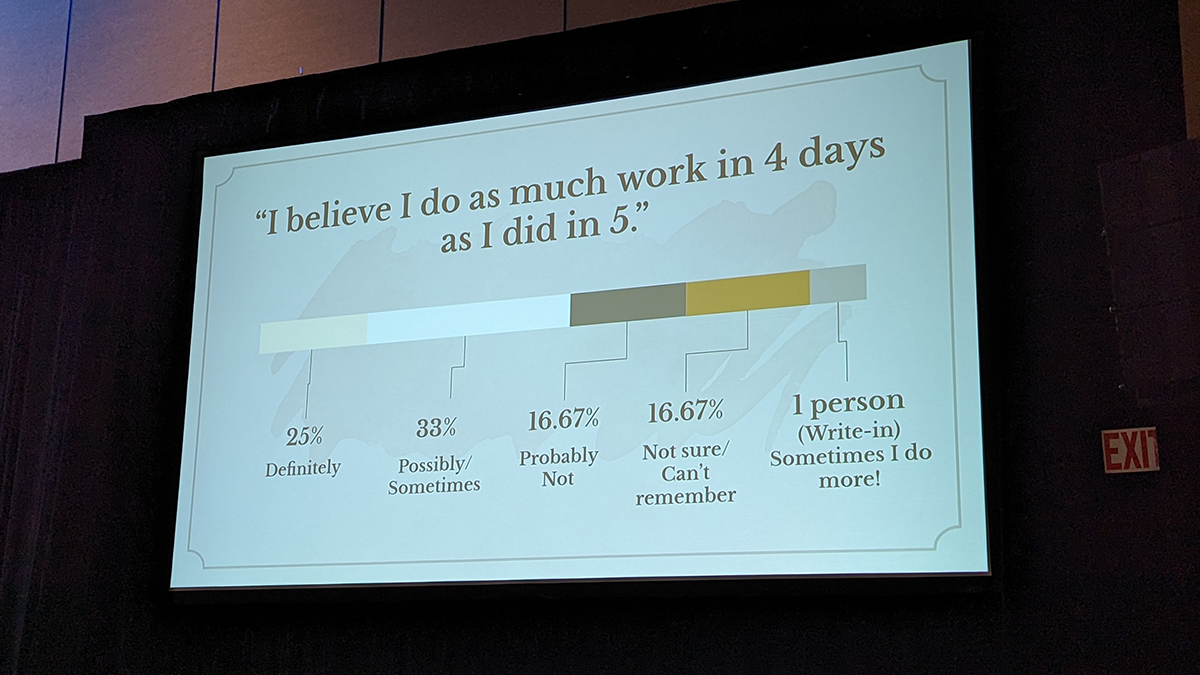
There’s one slide in Kitfox co-founder Tanya X Short’s GDC 2024 talk on the advantages and complications of the four-day work week that packs a brutally relatable punch. It reminds onlookers that irrespective of whether you’re working your dream job, it’s vital to establish a “work : life balance” and not a “work : recover-from-work balance.”
Short has long been an advocate of the four-day week, having been living the reality at Kitfox (the indie studio she co-founded) since August 2021. During her talk, she admits to having “complex” feelings about her new reality. The best part, she says, is that “now it feels normal.” That’s also the worst part.
Discussing the prospect of returning to the old days, she says that while two-thirds of Kitfox employees would accept the unfortunate reality of needing to work on a Friday, many employees had “very negative reactions” when presented with the hypothetical. Why? Kitfox staff feel the shorter work week lets them spend more time on things that are truly important, encourages them to be more productive at work, and has broadly enriched their lives for the better.
Has it actually impacted productivity levels one way or the other? Short doesn’t really know, but the vast majority of Kitfox workers certainly think so. As the slide below highlights, 25 percent of staff believe they do as much work in four days as they previously did in five. 33 percent are slightly less sure, but feel that might be the case “sometimes.” In fact, only 16.67 percent of staff say they “probably do less.”

Short admits she doesn’t trust self-reported productivity data in any way shape or form, but it’s still interesting to hear how workers feel about the change. What is clear, however, is that the four-day week has had a dramatic impact on worker retention. For Short and Kitfox, that’s huge.
“I think our decision to introduce [four-day weeks] is defensible from a holistic perspective,” she says. “Kitfox employs roughly 15 people across two internally developed projects and two published titles. And a typical internal project is historically made up of two programmers, two artists, and a designer. That’s our scale. At that scale every person is absolutely irreplaceable, because our projects and pipelines mold themselves around each person.
“One team member leaving is catastrophic.”
“None of us are replaceable. Obviously nobody’s interchangeable, but at a larger scale, you can fake it to some degree and we can’t. For our little teams retention is absolutely essential. One team member leaving is catastrophic”
She explains that onboarding new employees doesn’t only involve teaching them a new codebase, but also requires the entire team to relearn how to best work together. Put simply, Short doesn’t want anybody to leave, and even if they can’t afford to pay as much as rival studios, that might not necessarily be a dealbreaker.
“For retention, four-day work weeks are unmatchable,” she says. “When asked, half of Kitfox staff said they would need at least double [pay] to consider, maybe, going back to five days. An additional third said that would not be enough and they could not be persuaded,” she continues. “We’re not the only ones that found this result. You know, this is my dream job. I worked really hard to get here. You might wonder ‘is she really happier with more time to spend not doing her dream job?’ Yes, I am.”
For more on the four-day work week, you can check out our extensive reporting (which includes more musings from Short).






